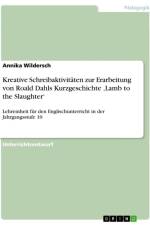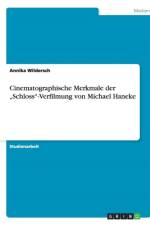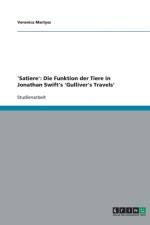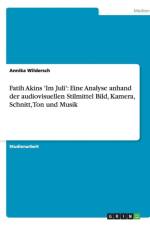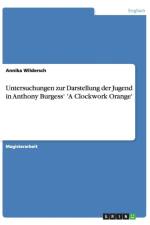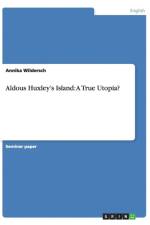von Annika Wildersch
17,95 €
Studienarbeit aus dem Jahr 2004 im Fachbereich Medien / Kommunikation - Film und Fernsehen, Note: 1,3, Universität Paderborn (Institut für Medienwissenschaft), Veranstaltung: Die Verfilmung von Kafkas Romanen, Sprache: Deutsch, Abstract: 1. EinleitungIn dieser Arbeit wird Michael Hanekes Kafka-Verfilmung ¿Das Schloss¿ in Hinblick auf einige spezifische cinematographische Merkmale analysiert. Es soll untersucht werden, welchen Zweck die Merkmale erfüllen und welche Auswirkung sie auf die Rezeption des Filmes haben. Im Zusammenhang damit wird der Film mit der Romanvorlage Kafkas und der darin enthaltenen Erzählweise verglichen. Um ¿Das Schloss¿ in einen Kontext einbetten zu können, wird zunächst eine Übersicht über Hanekes Filme vom Beginn seiner Arbeit als Regisseur bis heute gegeben. Im Hauptteil der Arbeit werden Parallelen zwischen Kafkas ¿Schloss¿ und Hanekes Filmen gezogen, um dann zu der Schloss-Verfilmung und dessen Merkmalen überzugehen. 2. Michael Hanekes Werk Es gibt Regisseure, für die ist das mainstream-Hollywood-Kino-System wie geschaffen. Die Story ist vorhersehbar, die Filme sind gekennzeichnet durch schnelle Schnitte, Klischees von schönen Frauen, süßen Kindern und starken Männern, es gibt Tabus, z.B. dass das ¿Böse¿ nicht siegt, und meistens ein happy ending. Doch nicht so Michael Haneke, der zur Zeit wohl bedeutendste Regisseur im deutschsprachigen Raum. Die Filme des Österreichers erwecken oft den Eindruck, die Zuschauer empören zu wollen, mit seiner Anti-Hollywood-Ästhetik versucht Haneke, die Sehgewohnheiten des Publikums zu verändern. Erzählstrom und Spannungsdramaturgie vermeidet er, lieber schockt er uns mit dem Blick auf das Alltägliche, kombiniert mit der Katastrophe.

